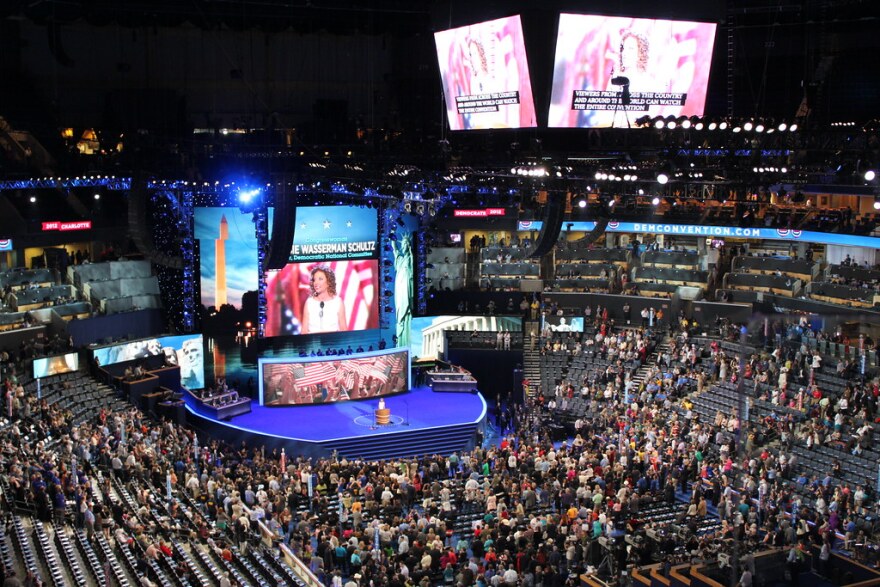After changes to controversial superdelegate rules, the role of delegates in the Democratic Party is evolving. KUER’s Caroline Ballard spoke with University of Utah political science professor Matthew Burbank about what that means for the upcoming Democratic Convention.
This interview has been edited for length and clarity.
Matthew Burbank: Among the states that have delegates up on Super Tuesday, Utah's one of the smaller number of delegate counts, right? Because again, if you look at California: 415. Right? Texas is 228 (pledged delegates), or something like that. So those are clearly states that are going to draw all the candidates.
Those are very big states, but states like Vermont or Arkansas or Utah ... usually what we see with that is that a couple of candidates will kind of target a state, and say, "I really need to win there that would help me if I could do that." But we've seen a fair number of candidates show up and campaign here. And that's something which I think is expected when you're one of the early voting states.
Caroline Ballard: What influence do Utah's delegates have in electing the eventual Democratic presidential nominee?
MB: Utah has 29 pledged delegates. Those are the ones that will be sorted out by the voting today. And on the Democratic side, they have six what are called "automatic" or the older term for that is "superdelegates." Alright, so these are people who are not pledged.
But one of the things that Democrats have done this year is they have changed the way they do their balloting on the first ballot at the convention, which means that the superdelegates are not voting in the first round. And that was one of the things that Sen. Bernie Sanders asked for as a change because he felt like the superdelegates were really heavily biased towards Hillary Clinton the last time around. So that's a change for Democrats this year.
What that means is that the 29 delegates that are coming from Utah are going to be the ones that are really contested here, because again, the superdelegates don't get to vote until a second round. And that would assume that nobody got to a majority of the delegates on the first round.
CB: Which is looking more and more likely.
MB: It's possible. Although with more moderates getting out of the race, it now looks a little less likely. And what we may see is a very tightly contested election between, say, a candidate like Joe Biden if he continues to do well, and the candidate like Bernie Sanders.
And given the way their support kind of breaks out again, this might look very much like what we saw with the Clinton Sanders race in 2016, which means we could possibly end up with a convention in which neither one of those major candidates has enough to win in the first round. That's unlikely. It hasn't happened, really, since 1968. I don't expect it to happen, but it is a sort of thing that could happen.
Caroline Ballard hosts All Things Considered at KUER. Follow her on Twitter @cballardnews



